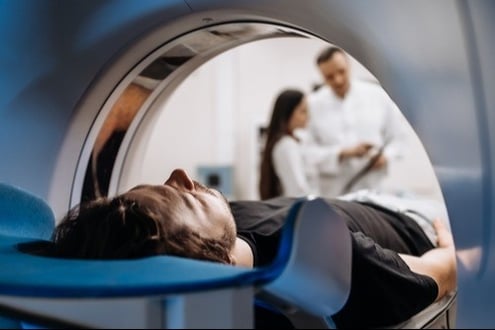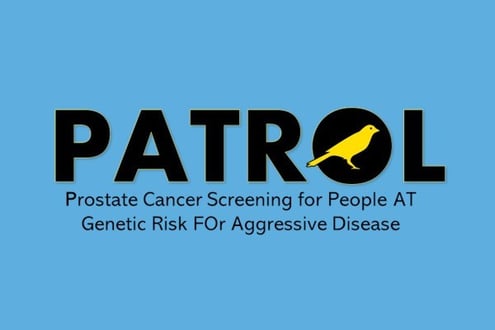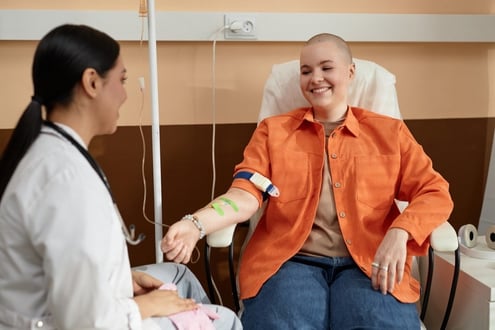PALB2 Gene Mutations

Frequently Asked Questions about Inherited Mutations
Below are some of the questions people ask about the gene, genetic testing and test results. If you have already tested positive for a mutation, you can read more detailed information about risk, risk-management and treatment options here.
What is ?
is a gene that helps repair damage to your . People who are born with changes—called mutations—in the gene have an increased risk for certain types of cancer.
Which cancers are associated with a mutation?
People with an in have an increased risk for the following cancers:
- breast
- ovarian
- pancreatic
- (more research is needed to confirm this link)
Does everyone with a mutation develop cancer?
Although the lifetime risk for cancer with a mutation is increased not everyone with the mutation develops cancer. Following the guidelines for screening and prevention increases the chances of preventing cancer or catching it at its earliest and most treatable .
Can men have a mutation?
Men and women can carry a mutation. mutations can be passed down from fathers or mothers to their sons and daughters.
Can skip a generation?
is a gene. Genes do not skip generations.
Mutations in the gene may be passed down from parents to children, but mutations do not skip generations either. Each person with a mutation has a 50% chance of passing their mutation on to each of their children. Children who did not inherit their parent's mutation cannot pass the mutation to their children.
Cancer can skip generations.
Some people with a mutation never develop cancer. They can still pass their mutation on to their children. A child who inherits their parent's mutation will be at increased risk for cancer. If a parent with a mutation never develops cancer, but their child who inherited their mutation develops cancer, it can appear as though the mutation has skipped a generation.
How do I find out if I have a mutation?
Genetic testing is a type of medical test that can help people learn if they have an in and other genes. The test can be performed on blood, saliva or tissue. The sample is collected and sent to a genetic testing lab.
It's a good idea to speak with a genetics expert before having genetic testing. They will answer your questions about testing and ensure that the correct test is ordered.
Does insurance cover the cost of testing?
In most situations, the cost of genetic testing is covered by insurance. Depending on your situation, deductibles and co-pays may apply.
How much does it cost to test for a mutation?
In most cases, people can get genetic testing for $300 or less. In certain situations, people may be able to get genetic testing with no out-of-pocket costs. The cost to you may depend on several factors, including:
- your insurance coverage.
- the type of genetic test that was ordered.
- your personal and family history of cancer.
Some labs offer financial assistance to cover the cost of genetic testing for people who are experiencing financial hardship.
What can people do if they are positive?
If you test positive for a mutation, you have options for screening, prevention and treatment of . There are expert guidelines and clinical trials that focus on:
These guidelines are based on the most current research and updated yearly. People who test positive for a mutation should speak with a genetics expert to make sure that their medical care is based on the most up-to-date information.
If you test positive for a mutation, you should inform your close blood relatives (first-, second-, and third-degree relatives) about your test results and encourage them to speak with a genetics expert.
What is Fanconi Anemia and what does it have to do with a mutation?
Fanconi Anemia (FA) is a rare and serious childhood disease that occurs in children who inherit two mutations, one from each parent. Children who have FA have blood problems, physical and developmental issues, and an increased risk of certain cancers.
Get notified when updated information becomes available.
SIGN UP FOR CONTENT UPDATESCancer Risks
Cancer risk estimates are updated based on the latest research. Read about the lifetime risk for different cancers in people with inherited PALB2 mutations.
Risk Management Options
Read about the latest expert guidelines for cancer screening and prevention for people with a PALB2 mutation. Learn about research studies enrolling high-risk patients.
Cancer Treatment Options
Tumor biomarker testing and genetic testing can provide additional clues about which treatments may work best for your cancer. People who test positive for a PALB2 mutation may have additional treatment or clinical trial options available to them.
Other Considerations
People who inherit a mutation in both copies of their PALB2 gene—one from each parent—have a rare disease known as Fanconi anemia. Learn additional information about inherited PALB2 mutations.
More Resources
Participate in Prevention Research
The screening and prevention studies below are enrolling people with mutations. To search for more studies, visit our Search and Enroll Tool.
Screening Study for Pancreatic Cancer in People with Inherited Mutations
Clinicaltrials.gov identifier: NCT05058846
PATROL Study: Prostate Cancer Screening for People AT Genetic Risk FOr Aggressive Disease
Clinicaltrials.gov identifier: NCT04472338
Screening Study for Men at High Genetic Risk for Prostate Cancer
Clinicaltrials.gov identifier: NCT03805919
Participate in Treatment Research
NePtune: Using PARP Inhibitors Before Surgery in Localized Prostate Cancer
Clinicaltrials.gov identifier: NCT05498272
Study of the Drug Olvi-Vec in Women with Ovarian Cancer
Clinicaltrials.gov identifier: NCT05281471
Stories from the Community
August 24, 2020
January 13, 2023
Watch Our Videos
Spotlight on Hereditary Cancer Research
Cancer Risks, Screening and Prevention for People with ATM, CHEK2, PALB2 and Other Genes














